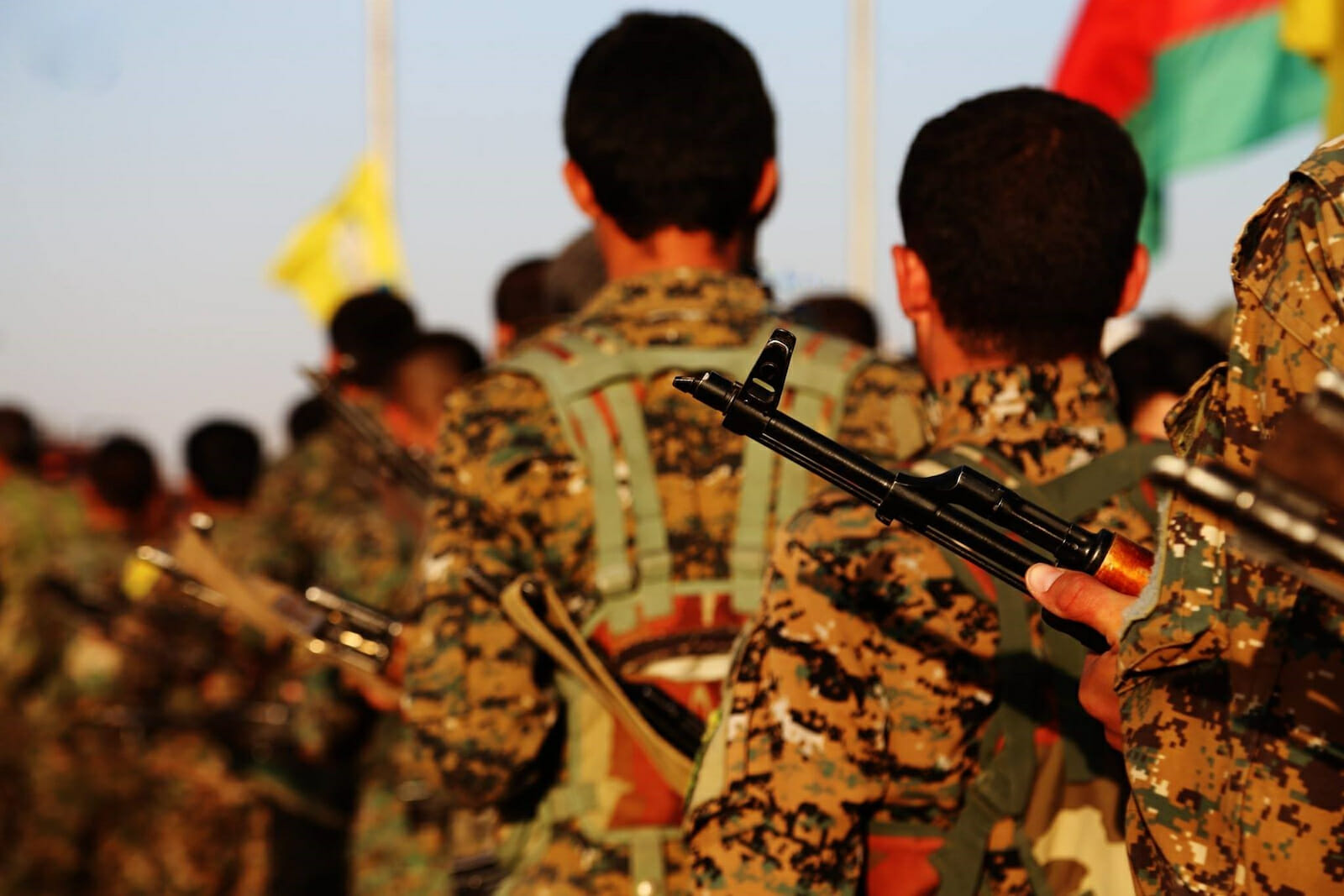
U.S. Credibility Rests on its Treatment of the Kurds
Independence, freedom, equality, loyalty. These words have peppered the speeches of American presidents and policymakers for time immemorial. Well, at least the last 244 years. Americans have built a foundational narrative around these words. However, in the eyes of our Kurdish allies, this narrative is full of holes.
Let’s embrace one of our words. Loyalty. Let’s show the Kurdish people that we understand their struggle. That we will protect them as allies. That the might of the U.S. military and economy is in their corner. Let’s supply them with $1 billion in military aid, impose diplomatic pressure on those who threaten them, and threaten sanctions on those who attack them. Instead of abandoning the Kurds to fend for themselves among hostile neighbors, let’s show them and the world that America stands by its allies.
An American ally would take a rather dim view of the way the U.S. has treated the Kurds. Fair-weather friends would be putting it lightly. In the 1970s, the U.S. encouraged the Kurds to rise against Saddam Hussein in Iraq. This disturbance benefited the U.S. because it distracted Saddam from his rivalry with the U.S.-backed Shah of Iran. However, instead of standing with them, the U.S. cut the Kurds off. This abandonment allowed the Iraqi army to crush their resistance. Again, in the 1990s, the Kurds challenged Saddam, believing they had U.S. support. Again, they were broken. Most recently, Syrian Kurds fought alongside U.S. troops to defeat ISIS. Again, the U.S. abandoned them, pulling out of the region, allowing Turkey to push the Kurds away from their border forcefully.
Sending military aid to the Kurds allows them to fight their own battles without drawing the U.S. into another costly war in the Middle East. Sending $1 billion is just a drop in the bucket; we send proportional amounts to other allies in the region. This money will give the Kurds the ability to protect themselves but is not so much to encourage them to destabilize the region. With the money will come the stipulation that they do not take offensive action.
Diplomatic pressure will show the world that the U.S. is willing to use its clout for an ally. Even with its decline in credibility, when the U.S. says something, the world listens. If the U.S. turns up the heat on Turkey and demands a cessation of hostility against the Kurds, it will be a strong gesture of support. It will show allies that the U.S. will not stand by silently in their hour of need.
Economic sanctions will show U.S. resolve. No country wants to be on the wrong side of the world’s biggest economy. A credible threat of economic sanctions will lend a little muscle to the diplomatic pressure.
Henry Kissinger said, “America has no permanent friends or enemies, only interests.” If this is true, as many critics argue, then why is our past policy toward the Kurds so flawed? It is flawed because loyalty is in the U.S. interest.
Permanent, strong alliances have been the foundation of world order since the end of World War II. The U.S. has built a global web of partnerships that are held together largely by credibility. States support each other’s interests because they believe their allies will act in kind. When the U.S. abandons a partner, it damages its credibility. This damage can weaken the whole world order. American allies in Europe and Asia wonder whether the U.S. will really stand by them if things go sideways. Conversely, adversaries such as Russia and Iran see opportunities to subvert the U.S.
The U.S. can show the world that it is a reliable ally. Through military, diplomatic, and economic support of the Kurds, we can confirm that loyalty is more than just a spoken word. Loyalty is what American allies expect. Loyalty is what we expect in return. Loyalty holds together the fabric of world order.

